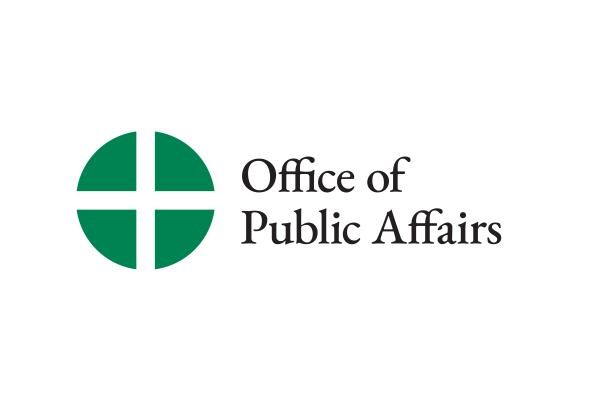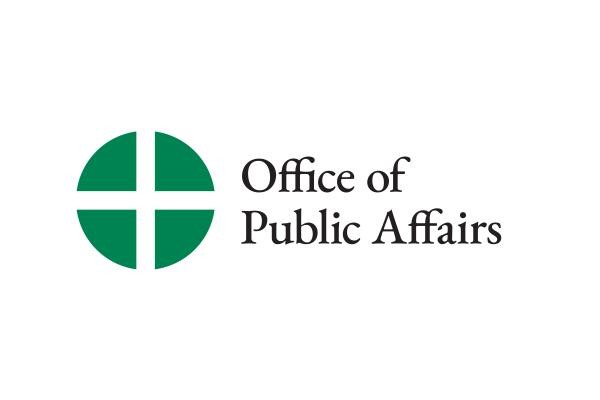USCCB Chairman Decries Opening of Family Detention Center in Dilley, Texas, Proposes More Humane Alternatives to Detention for Vulnerable Families
WASHINGTON—Bishop Eusebio Elizondo, auxiliary bishop of Seattle, chairman of the U.S. Conference of Catholic Bishops’ Committee on Migration, decried the opening of a 2,400-bed detention center in Dilley, Texas, constructed to house, among others, families fleeing persecution in Central America.
December 16, 2014
WASHINGTON—Bishop Eusebio Elizondo, auxiliary bishop of Seattle, chairman of the U.S. Conference of Catholic Bishops’ Committee on Migration, decried the opening of a 2,400-bed detention center in Dilley, Texas, constructed to house, among others, families fleeing persecution in Central America.
The detention center, operated by a private, for-profit group, was inaugurated December 15.
“It is inhumane to house young mothers with children in restrictive detention facilities, as if they are criminals,” said Bishop Elizondo December 16. “Already traumatized from their journey, these families are very vulnerable and need care and support, not further emotional and psychological harm.” Studies have shown that detention has a harmful psychological impact on children.
Bishop Elizondo added that the Obama administration’s pursuit of a deterrence policy– including detention and interdiction– against children and families fleeing violence undermines basic human rights.
“Many of these families are fleeing persecution and should be afforded the full benefit of domestic and international law,” Bishop Elizondo said. “As we saw in the case of Artesia, detention denies mothers and children with valid legal claims meaningful access to due process, including legal representation.” A temporary detention facility in Artesia, New Mexico, housing families was recently closed down, in part, because of strong opposition to due process violations and conditions there, especially for children. The average age of children detained in Artesia was six and a half years old.
Bishop Elizondo added that humane alternatives to detention exist, particularly community-based alternatives based on a case management model.
“Past community-based programs have shown that vulnerable groups such as families can be placed in a community setting and still appear at their immigration hearings, provided they are given the proper support,” Bishop Elizondo said. “The government should explore this humane alternative and not cause further harm to these families, particularly children.”
---
Keywords: U.S. Conference of Catholic Bishops, USCCB, Bishop Eusebio Elizondo, Committee on Migration, refugees, migrants, immigrants, human trafficking, National Migration Week, Artesia, Dilley, Central America, unaccompanied children, deportations, detentions
# # # # #
MEDIA CONTACT:
Norma Montenegro Flynn
O: 202-541-3202
The detention center, operated by a private, for-profit group, was inaugurated December 15.
“It is inhumane to house young mothers with children in restrictive detention facilities, as if they are criminals,” said Bishop Elizondo December 16. “Already traumatized from their journey, these families are very vulnerable and need care and support, not further emotional and psychological harm.” Studies have shown that detention has a harmful psychological impact on children.
Bishop Elizondo added that the Obama administration’s pursuit of a deterrence policy– including detention and interdiction– against children and families fleeing violence undermines basic human rights.
“Many of these families are fleeing persecution and should be afforded the full benefit of domestic and international law,” Bishop Elizondo said. “As we saw in the case of Artesia, detention denies mothers and children with valid legal claims meaningful access to due process, including legal representation.” A temporary detention facility in Artesia, New Mexico, housing families was recently closed down, in part, because of strong opposition to due process violations and conditions there, especially for children. The average age of children detained in Artesia was six and a half years old.
Bishop Elizondo added that humane alternatives to detention exist, particularly community-based alternatives based on a case management model.
“Past community-based programs have shown that vulnerable groups such as families can be placed in a community setting and still appear at their immigration hearings, provided they are given the proper support,” Bishop Elizondo said. “The government should explore this humane alternative and not cause further harm to these families, particularly children.”
---
Keywords: U.S. Conference of Catholic Bishops, USCCB, Bishop Eusebio Elizondo, Committee on Migration, refugees, migrants, immigrants, human trafficking, National Migration Week, Artesia, Dilley, Central America, unaccompanied children, deportations, detentions
# # # # #
MEDIA CONTACT:
Norma Montenegro Flynn
O: 202-541-3202


